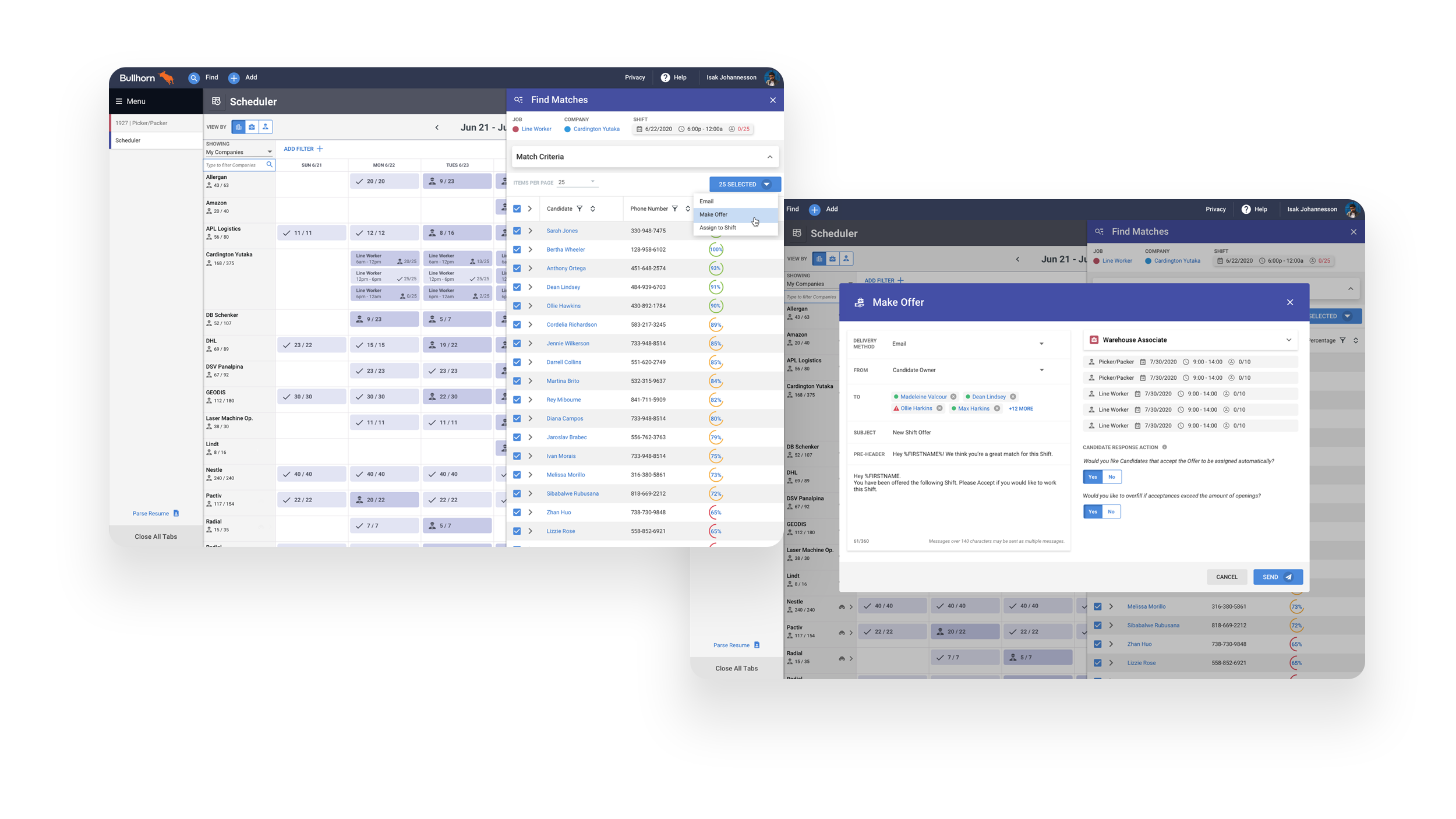Unlocking $100 million in pipeline deals.
Designing the most powerful ATS, integrating payroll and billing solutions.
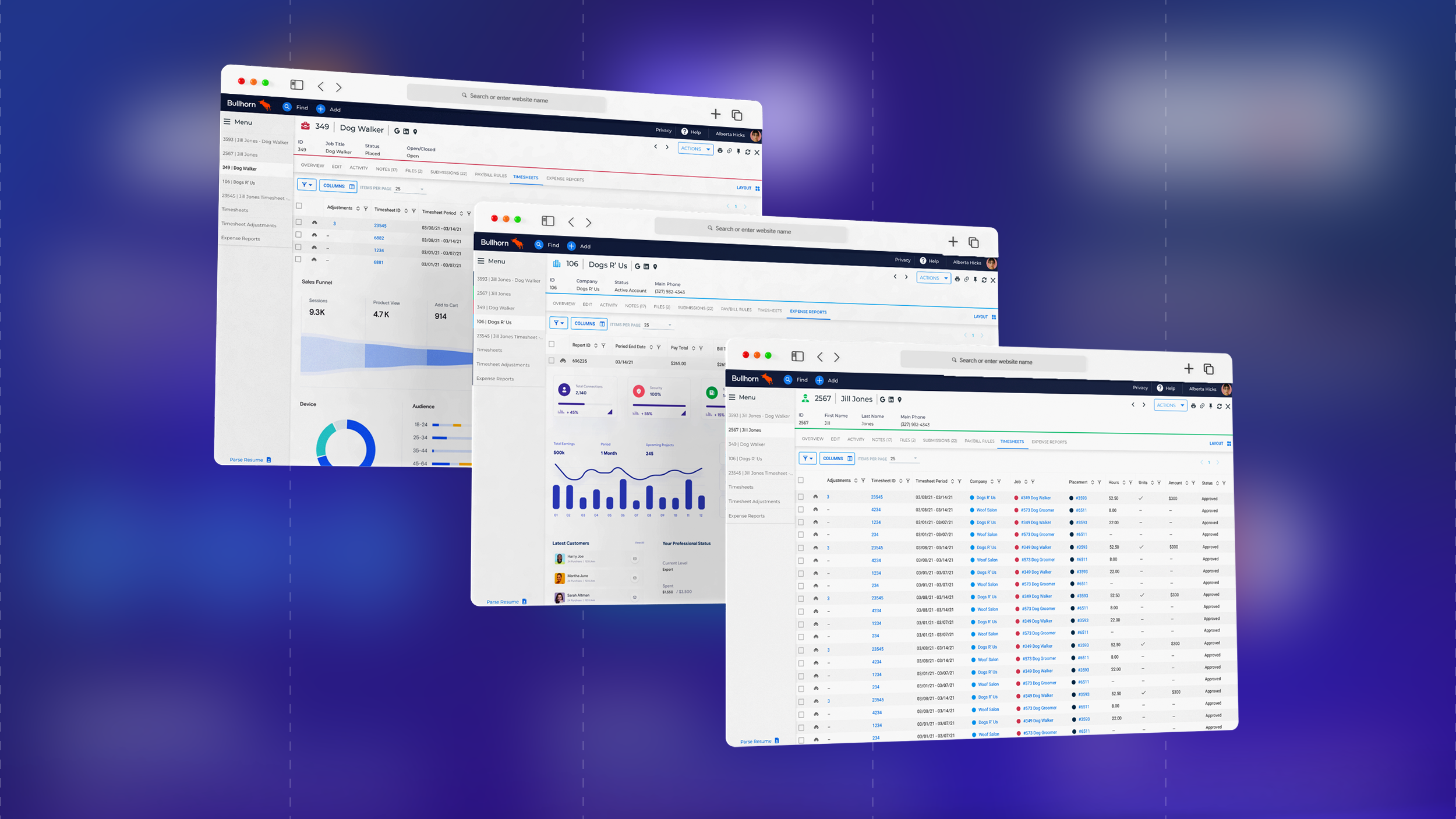
My role
I was responsible for leading the user experience and design of the core platform, focussing on the back and middle office pay & bill product, new features and integrations of over 100 marketplace partners.
I led ideation and discovery of customer user journeys, feature requirements, designs, prototypes and validation with end users.
I used complex prototypes to help the organisation understand an ambiguous problem space and make software decisions.
Features released in January 2021.
Highlights
- Promoted to global UX manager
- Saved $14.8M in product lifecycle processes
- Improved NPS from 46 to 77
- Supported an annual revenue of $400M
- Managed a team of 12 covering 24 product teams
- Open source design system
The Challenge
Bullhorn had 18 years experience in staffing software and I joined the team from one of seven acquisitions that year, Invenias. The companies mission was breaking into the US Pay & Bill market and integrating features into the existing ATS. To do this, we needed to master time and expense, invoicing, billing codes, rate cards, shift fulfilment, credentialing, all while navigating the complexities of different state and federal tax laws.
• Employees need to be paid correctly, assigned shifts and credential checked to make sure qualifications are valid (e.g forklift driver).
• Amazon needs to process invoices to and from suppliers and pay based on agreed rate cards.
How we knew it was a problem worth solving
The addressable US Pay & Bill market is in the billions. Firms are using several software solutions to accomplish payroll and HR within it’s business. Using different suppliers has massive costs of licensing, onboarding, training and maintenance – all of which costs money, and that is money we could be saving our customers.
Does it not make sense to have ONE solution to do them all? Yes it does, and this is called Bullhorn One.
Who we worked with and how
Working with PrismHR our accounting partners and SME, I used the double diamond process and began discovery. Speaking with customers, gathering insights and understanding the deeper issues to make sure I was working on the right problems. I story mapped user journeys and workflows taking into account every happy and unhappy path. Once presenting features to stakeholders, the cost v effort and estimated ROI, myself and my team created prototypes to validate with users and iterated where necessary. Working in partnership with our technical leads we choose technologies that best suited the application in terms of user experience and performance. As this was (and is) Bullhorns number one business priority, I gave regular updates and presentations to stakeholders on prototypes and progress.
The solution
We needed to do three essential things in order to build a compelling solution customers would use and love.
1. Design system
Enhance the design system so over 350 engineers across 24 product teams could build features quickly and efficiently.
2. Pay & Bill
Give firms the ability to do all their accounting needs quickly without ever leaving the platform or integrating into third party systems.
3. Shift scheduling
Allow hiring managers to create and manage shift of workers. Allow candidates to managed credentials, availability and timesheets.
1. Design system
I upgraded the visual identity and components of design system moving from our old software style called ‘S-release’, to our new shinty software called ‘Novo’. This upgrade also included dramatic user experience improvements such as auto saving and working with multiple records at the same time – making workflows easier and consistent across the software.
Checkout the open source design system customers and marketplace partners love.
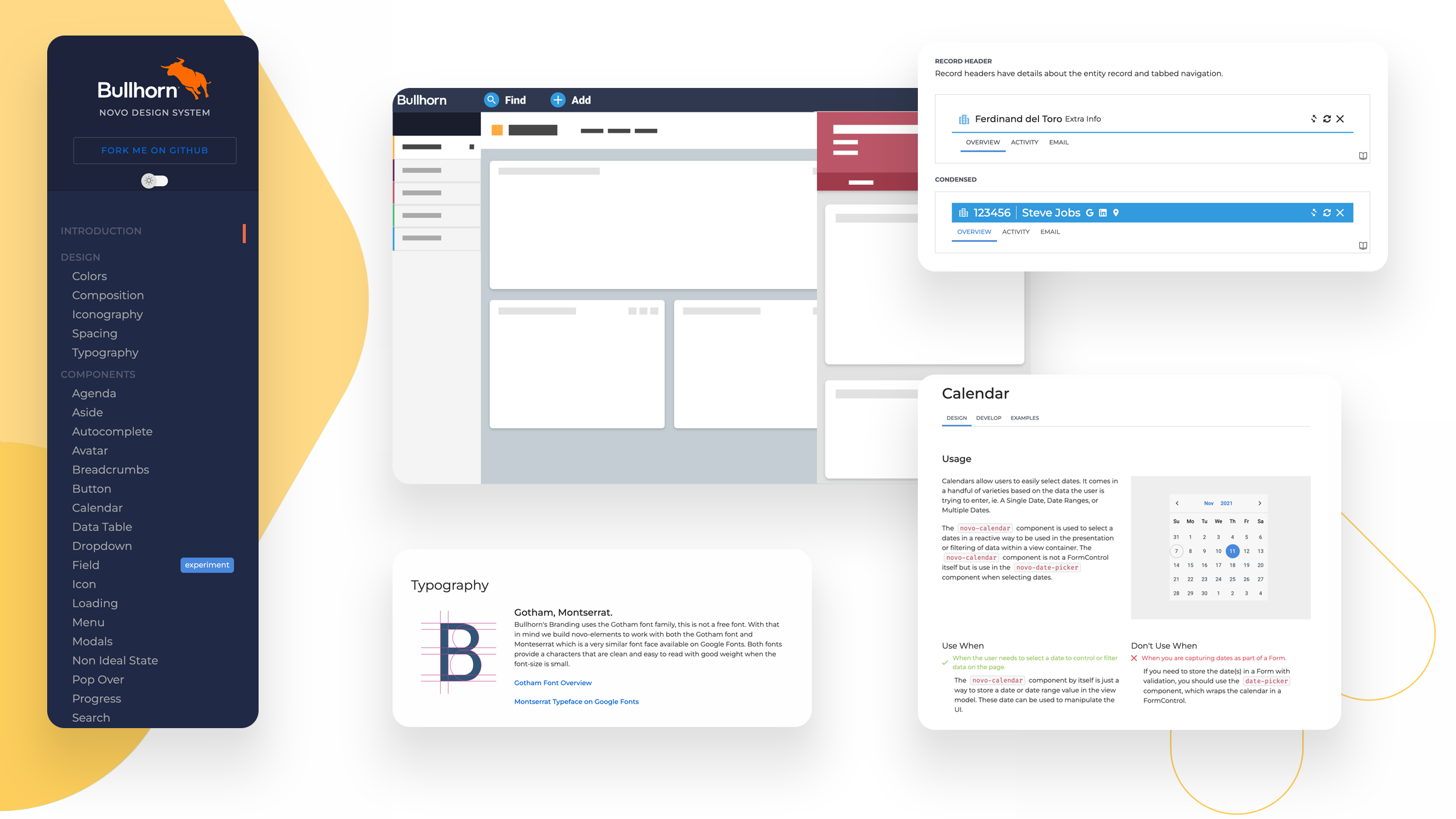
2. Pay & Bill
After hundreds of prototypes, user flows and user testing sessions, we created an awesome Pay & Bill solution that integrated seamlessly to the existing software.
Some of the prototypes were 400 screens linked together, so in order to navigate these without losing your mind, sitemaps were created at the start of every prototype which was accessible no matter how deep you were in the prototype.
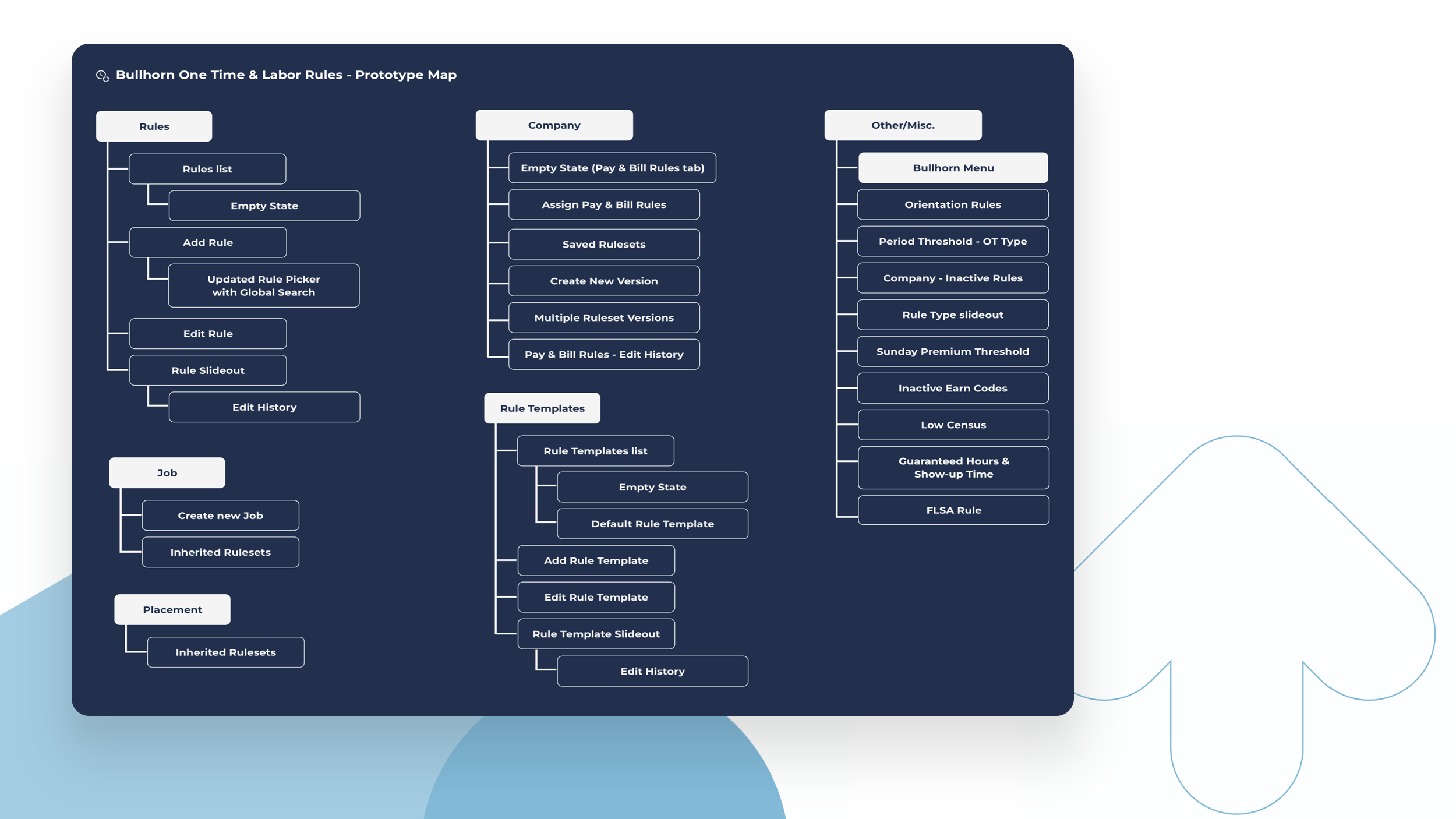
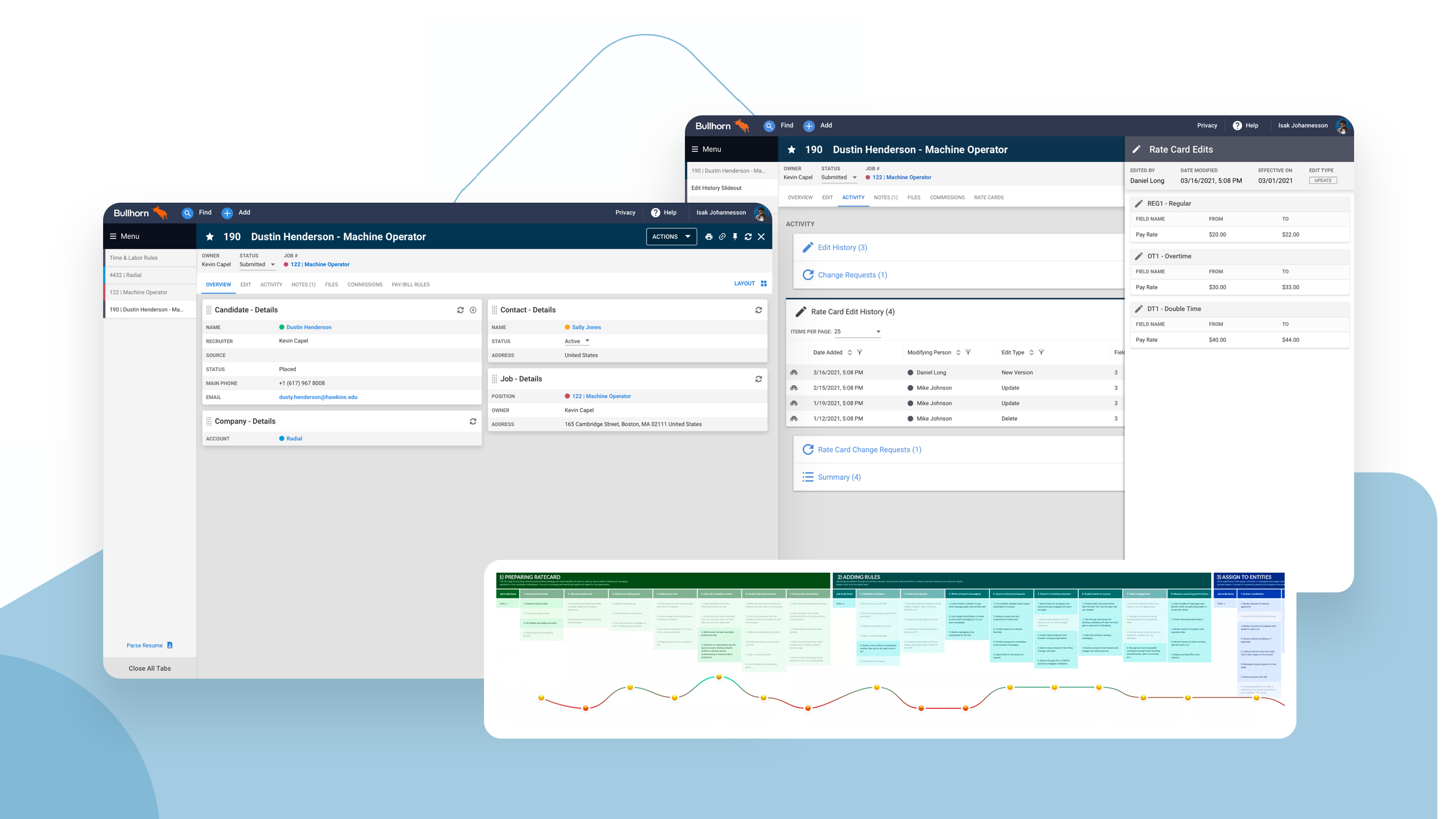
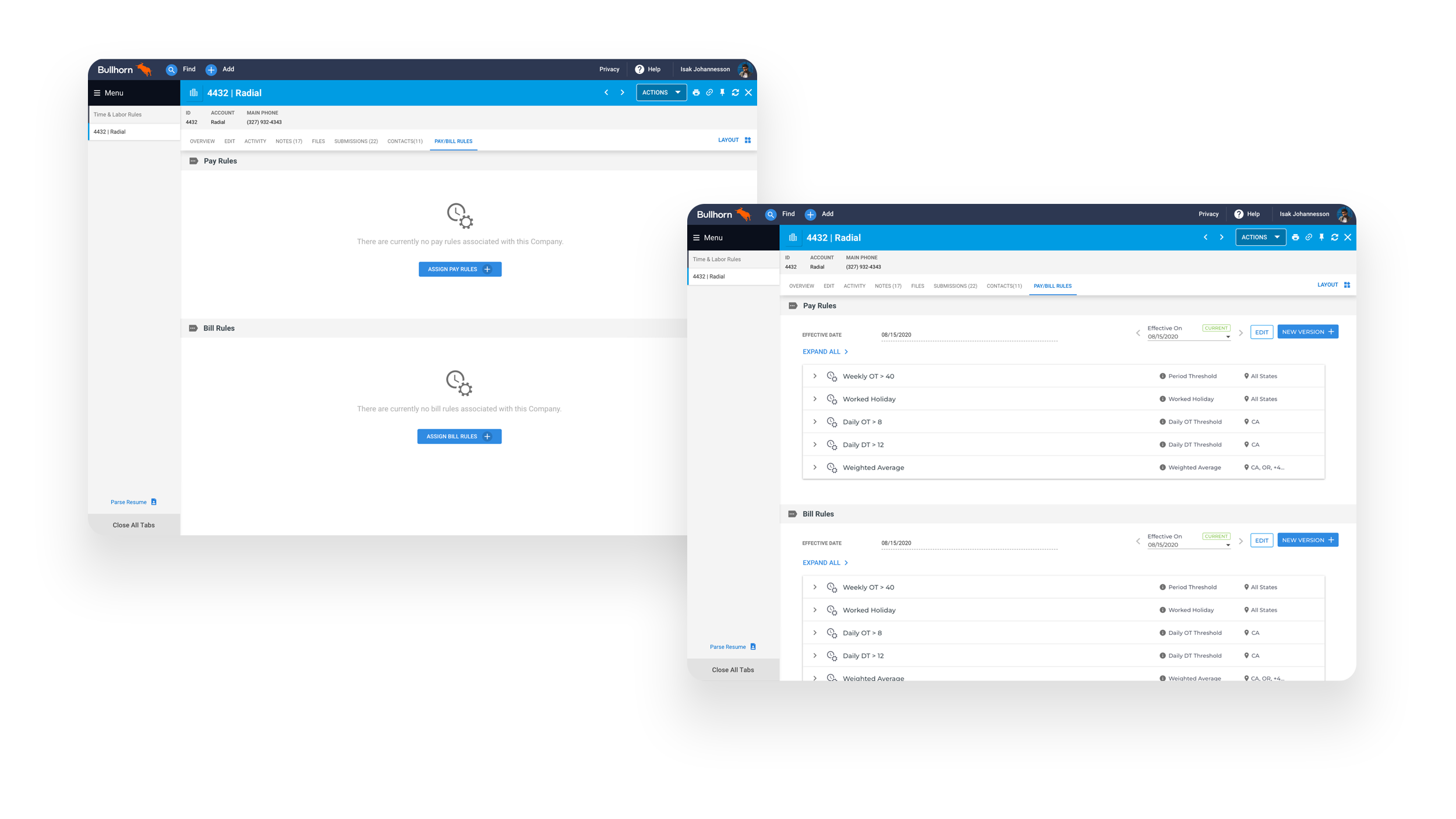
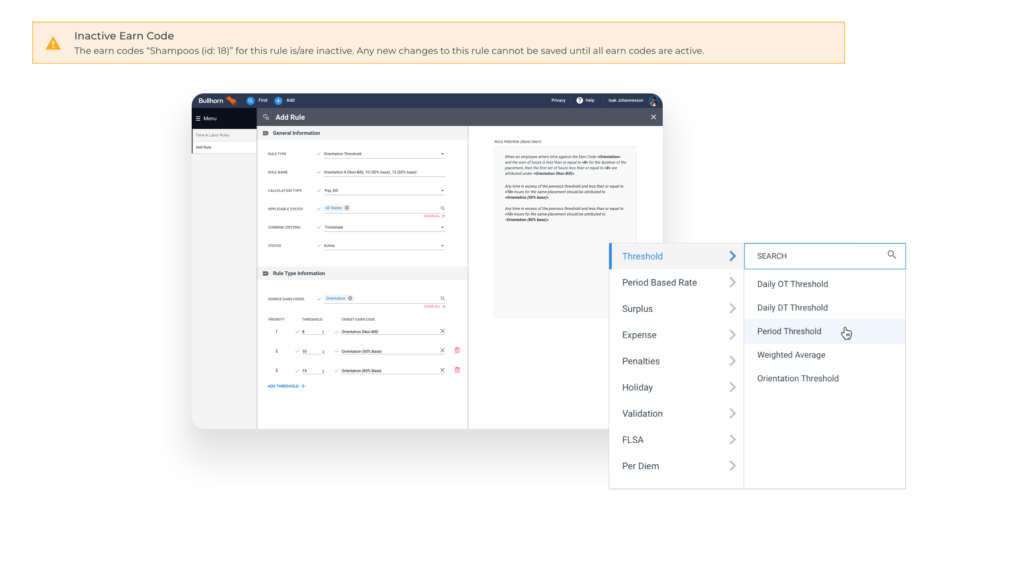
This is the simple setup and creation of new billing rules to the system. Usually done by admin with billing permissions granted to them.
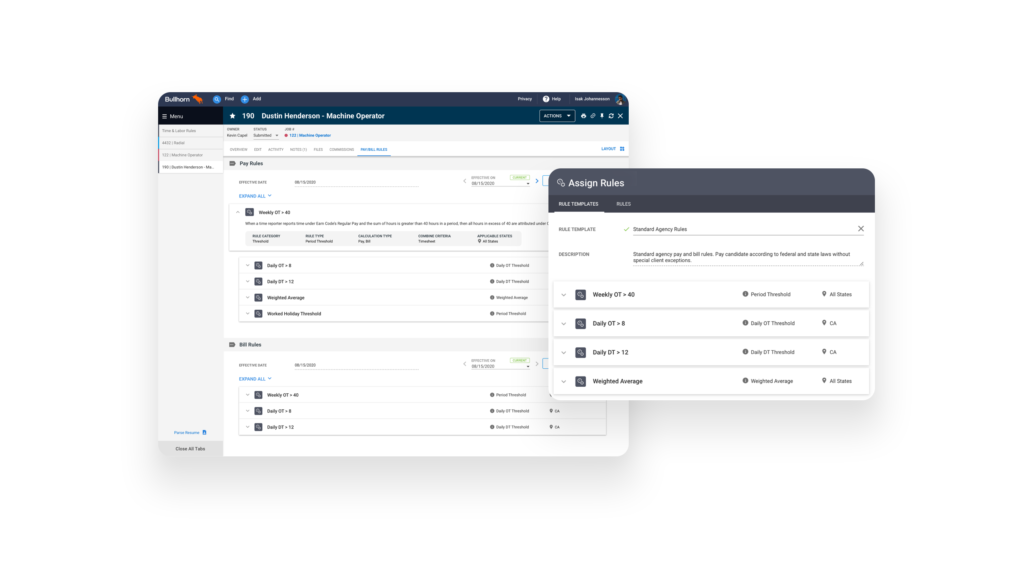
From the templated billing rules anyone with the correct permissions can assign them to a job and company entity.
Candidate features:
add text tbd
3. Shift scheduling
The shift scheduling feature allowed users to filter on candidate results best suited to a job/shift, including credential checking. Depending on their potential match, they were mass emailed/text shift details. From there the workers could accept of decline shifts.
As the shifts started to fill, you would see a live updates on the rota displaying complete or incomplete shifts.
